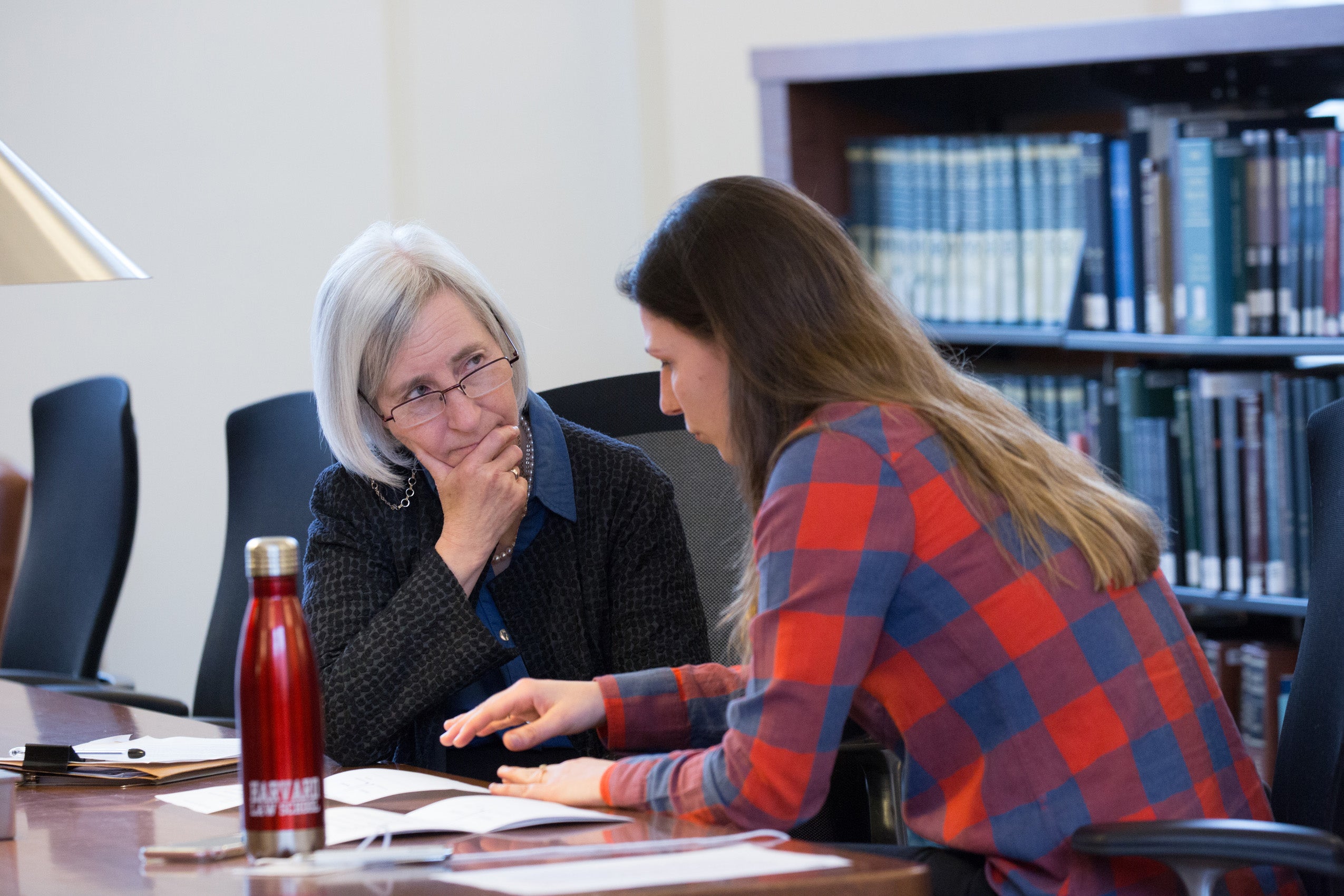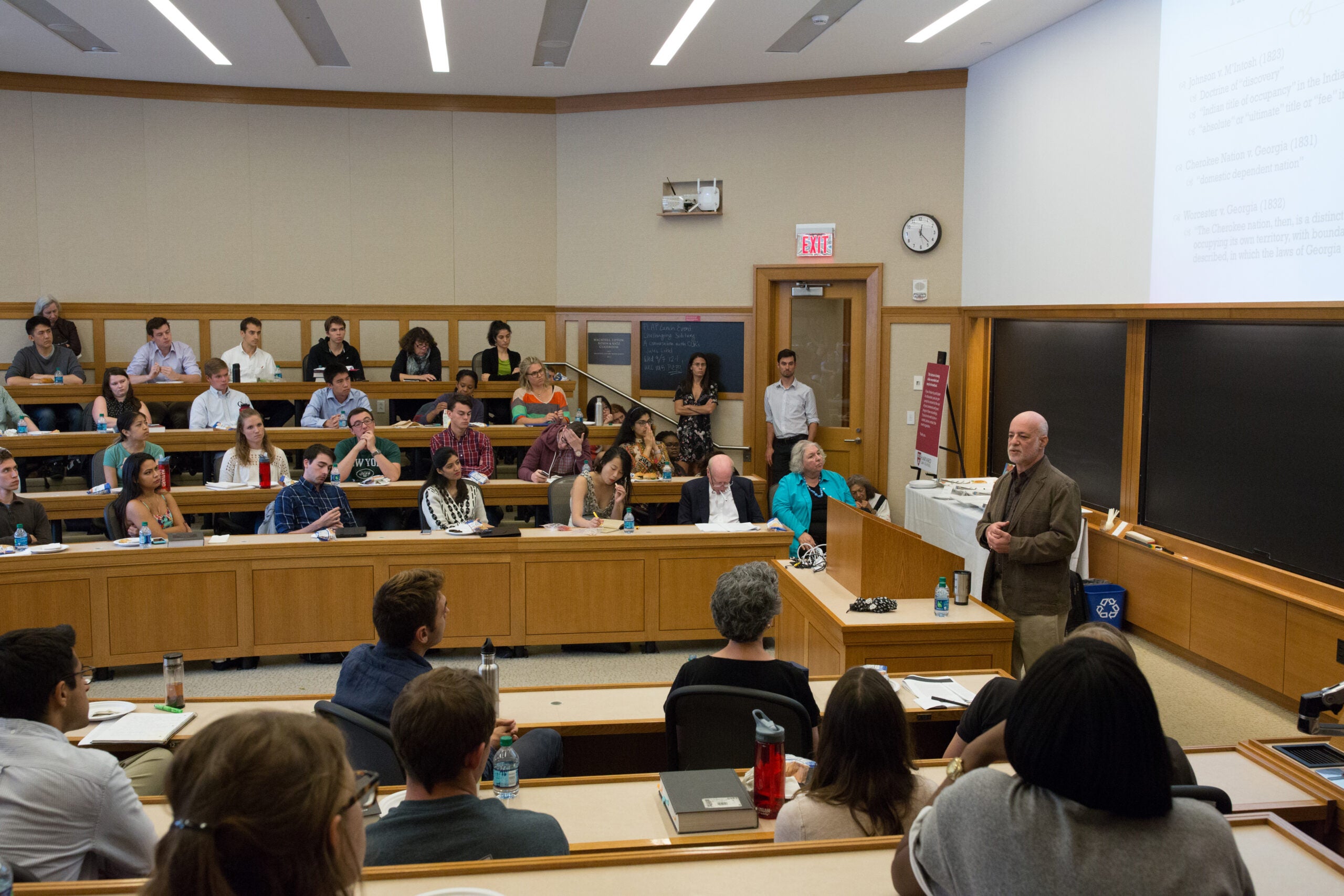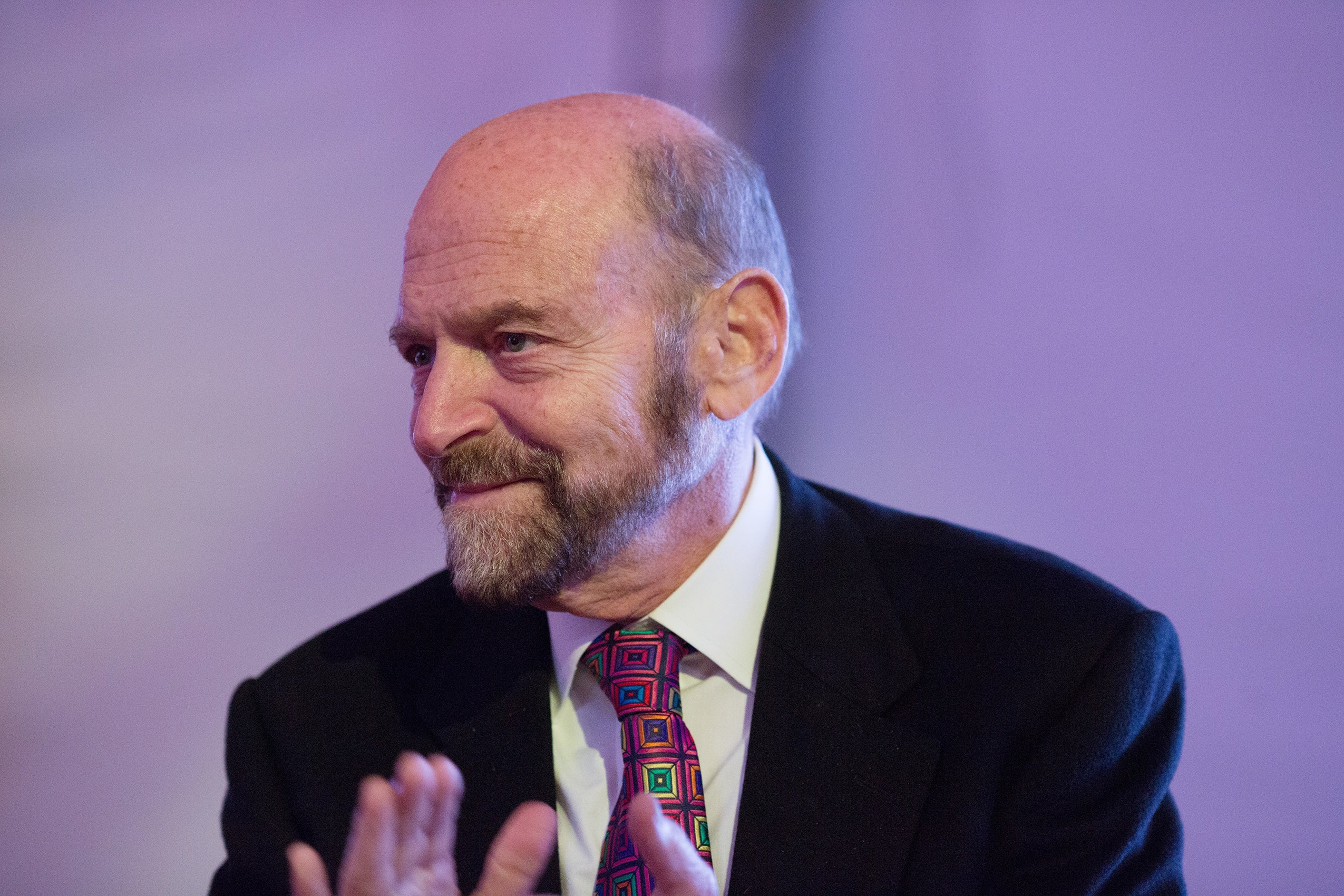People
Randall Kennedy
-
Charlottesville, President Trump And Confederate History (audio)
August 22, 2017
An interview with Randall Kennedy. This week on Freak Out And Carry On, Ron Suskind and Heather Cox Richardson respond to the violence in Charlottesville and President Trump's response. They also dive into the history of confederate statues with Randall Kennedy, law professor at Harvard University and author of "The Persistence of the Color Line: Racial Politics and the Obama Presidency", and Tony Horwitz, author of "Confederates in the Attic: Dispatches from the Unfinished Civil War".
-
A few weeks ago I was interviewing the Rev. Laura Everett, at an intersection in Boston's Back Bay where a bicyclist was recently hit and killed, when in the background, we heard a pedestrian yelling at another pedestrian...Harvard law professor Randall Kennedy wrote a book about the N-word, a word he called the "atomic bomb of racial slurs." "Not only [was] it used in that way 33 years ago," Kennedy said at his desk in Cambridge. "But is it used in that way today? Sure it is." Kennedy says the current political climate has created a sense that bigotry can be OK.
-
Connecting beyond the classroom
April 21, 2017
More than 60 Harvard Law students and 27 HLS faculty members took over the typically quiet tables of the library reading room for the first “Notes and Comment” event.
-
A grudging admiration for Trump’s speech
January 23, 2017
An op-ed by Randall Kennedy. I am appalled by Donald J. Trump, particularly his willingness to elicit and exploit destructive social prejudices, including sexism, racism, and nativism. I see his ascension to power as a threat to the best features of American life. I applaud those who have committed themselves to resistance to Trumpism. Here I think especially of those, like Representatives Katherine Clark and Mike Capuano, who, at some risk, defied tradition and refused to attend the inauguration as a protest against the incoming president. Still, I must confess a certain grudging admiration for Trump’s performance of his inaugural address even as I loathe the baleful politics that his words simultaneously obscure and announce. Trump’s address was succinct, only 17 minutes, and benefited from the channeling of attention that brevity facilitates.
-
The Case for Resistance
December 16, 2016
An op-ed by Randall Kennedy. Donald J. Trump will be the next president of the United States. That is sobering because he is glaringly unsuited for any significant public office, much less the most important in our country and indeed the world. Nothing about his pre-candidacy record recommends him. To the contrary, it is so lacking in relevant achievement, so marred by embarrassment, that many onlookers thought that his run for the presidency was nothing more than a publicity stunt. Then his campaign itself was so repulsive, so saturated with bigotries of various sorts, so ostentatiously crass, so glaringly demagogic, that it prompted many leading figures in his own party to repudiate him.
-
Randall Kennedy on ‘The Framers’ Coup’
December 12, 2016
A desire to learn more about three subjects led me to read the five new books I most enjoyed this year. In this moment of high anxiety about the state of American politics one can receive useful perspective by studying Michael Klarman’s magisterial “The Framers’ Coup: The Making of the United States Constitution.”
-
Diversity and U.S. Legal History
December 7, 2016
During the fall 2016 semester, a group of leading scholars came together at Harvard Law School for the lecture series, "Diversity and US Legal History," which was sponsored by Dean Martha Minow and organized by Professor Mark Tushnet, who also designed a reading group to complement the lectures.
-
Mistrial in ‘Open and Shut’ Police Shooting Stuns Observers
December 7, 2016
The video was unambiguous: A white police officer fatally shot an unarmed black man in the back as the man ran away. But a South Carolina jury was unable to agree on a verdict in one of the nation's ghastliest police shootings, with a lone holdout forcing a mistrial. The outcome stung many African-Americans and others. If that kind of evidence can't produce a conviction, they asked, what can?...Randall Kennedy, a black Harvard University law professor and author of several books on race relations, had difficulty reconciling the law with the mistrial, which he called "frightening." "It appeared as though it was open and shut," said Kennedy, a native of Columbia, South Carolina. "Obviously, this is a case of some criminal action on the part of this police officer. Is it at all plausible that you have a man running and a police officer says, 'I'm firing in self-defense?'"
-
Black Lives Matter, the next stage of the civil rights movement
December 5, 2016
An op-ed by Randall Kennedy. Black people have been struggling to free themselves from racist oppression throughout American history. They have revolted, fled, petitioned, boycotted, exposed abuses through journalism and propaganda, prayed in, stood up, and sat down. An iteration of black resistance that was begun in 2013 marches under the banner of Black Lives Matter...An area that has proven to be peculiarly resistant to racial reform is the administration of criminal justice, perhaps because it consists of literally millions of low-visibility, highly discretionary decisions that are not easily subject to effective regulation. Typically, however, courts, including the Supreme Court, have made no serious effort to supply such regulation. Instead, obtuse interpretations of the Fourth Amendment have permitted police to use race as a factor in traffic stops, leading to the notorious infraction of "driving while black."
-
How the N-word became the ‘atomic bomb of racial slurs’ (video)
October 26, 2016
Its effect can be explosive and painful: Harvard University professor Randall Kennedy has traced the history of the N-word to understand the evolution of the infamous racial slur. Kennedy joins special correspondent Charlayne Hunter-Gault to discuss this history, including reappropriations of the word and the complexities and damages of its usage today.
-
First Clinton-Trump Debate Is Framed by Rifts Over Race and Gender
September 26, 2016
Hillary Clinton and Donald J. Trump are spoiling for an extraordinary clash over race and gender that could come as early as Monday’s debate, with both presidential candidates increasingly staking their fortunes on the cultural issues that are convulsing the nation....“The extremity of the divergence is unlike anything I have confronted in my adult life,” said Randall L. Kennedy, a professor of law at Harvard whose books include “The Persistence of the Color Line: Racial Politics and the Obama Presidency.” “The analogies that come to mind are Goldwater versus Johnson in 1964, and Lincoln versus Douglas in 1860.”
-
Law School Launches Series on Diversity
September 8, 2016
After a year that saw Harvard Law School embroiled in debates over race and diversity, Law School Dean Martha L. Minow has launched a new lecture series entitled “Diversity and U.S. Legal History.” The 10-week series, which kicked off Wednesday, is a joint effort on the part of the Dean’s office and Law School professor Mark Tushnet’s reading group, which bears the same title as the series....The lecturers—who include Law School professors Randall L. Kennedy, Tomiko Brown-Nagin, Annette Gordon-Reed, Michael Klarman, and Kenneth W. Mack, Divinity School professor Diana L. Eck—will discuss topics ranging from race in American history, to challenges facing Latinos, the originalist case for reparations, and religious pluralism...Law School professor Joseph William Singer delivered the first talk—“567 Nations: The History of Federal Indian Law”—to a crowded room Wednesday in the school’s student center. Singer recounted the development of colonial and United States law regarding Native Americans from the 18th century to the present, arguing that certain judicial rulings or government actions were unconstitutional.
-
Harvard Law School and the Berkman Center for Internet & Society at Harvard University have announced that Michael R. Klein LL.M. '67 has made a gift of $15 million to the Berkman Center, which in recognition, will now be known as the Berkman Klein Center for Internet & Society.
-
Becoming ambassadors of higher education and searching for solutions to issues confronting academia today are important missions for University graduates, said legal scholar Randall Kennedy ’77 at the 269th Baccalaureate ceremony on Sunday...However, Kennedy pointed out, there are several issues and problems facing institutions of higher education these days. “Inefficiencies in the system of higher education do not stay put. They are infectious, posing dangers to the system as a whole. Colleges and universities face a rising loss in confidence regarding their worthiness,” Kennedy said. This “worthiness” is typically defined by the marketability of the college’s merits. Furthermore, he pointed to the increasing burdens of government regulation and mounting costs of tuition. Kennedy further critiqued the increasing desire among colleges to achieve popularity, as evidenced by the frequent hiring of Hollywood celebrities to provide commencement addresses.
-
Yale University announced last week that it will retain the name of Calhoun College, one of its 12 residential colleges. The college was named for John C. Calhoun, a 19th-century alumnus and a fervent supporter of slavery. The decision set off an angry response from students on campus, who condemned the decision at an intense university-sponsored town hall last Thursday. But one prominent race relations expert doesn't believe that Yale made a mistake in their decision to keep Calhoun's name on the college. While removing the name would have been Harvard law professor Randall Kennedy's "preference," he "can respect the decision thay [Yale] made," he told Business Insider. "People speak as if you keep John C. Calhoun's name, that means you're indifferent to the legacy of racism," he continued. "I don't believe that. I think that there are people who embrace the idea of keeping his name who are deeply concerned with the legacy of slavery and racism and want to do things to address that legacy."
-
Students and faculty at Occidental College are protesting the school’s choice of Harvard Law School professor Randall L. Kennedy as their commencement speaker for his controversial statements on race-related activism and the film “The Hunting Ground.”...The vocal opposition prompted Occidental College President Jonathan Veitch to respond in a message to school affiliates defending his choice and emphasizing the importance of listening to a range of viewpoints. “Randall Kennedy was chosen because he is a thoughtful and nuanced commentator on race in America,” Veitch wrote...Kennedy said in an interview that he is not surprised some Occidental affiliates disagree with his views, as race and sexual assault are controversial subjects. Diverging opinions, however, should not bar institutions from inviting speakers, he said. “Universities, above all places in American life, should be places where debate and free exchange are facilitated and expected,” Kennedy said. “The idea that because a group of people disagrees with somebody, that in it of itself simply cannot or should not be the basis for excluding someone.”
-
Law School Faculty Defend Minow, Criticize Activists
March 22, 2016
A week after Harvard Law School’s seal change became final, a group of faculty members are publicly speaking out in support of Law School Dean Martha L. Minow, charging that student activists at the school have not given her due credit for her efforts to address racial issues on campus. Seven Law School faculty members—Glenn Cohen, Randall L. Kennedy, Richard J. Lazarus, Todd D. Rakoff, Carol S. Steiker, Kristen A. Stilt, and David B. Wilkins—published an open letter in the Harvard Law Record Monday defending Minow. They wrote, “Our goal here is… to express our support and deep appreciation for Dean Minow and all that she has done during this difficult and important process, and to advance the cause of justice throughout her long and distinguished career.”
-
Harvard professor describes the problem with colleges trying to become more ‘diverse’
March 16, 2016
In December, the US Supreme Court reheard oral arguments in an affirmative action case called Fisher v. University of Texas. The highly anticipated case could have a far-reaching impact on the ability of US universities to consider race in admissions as part of their efforts to create a diverse campus. Indeed, proponents of affirmative action cite diversity as one of its main goals. However, one prominent higher education expert thinks conversations about diversity distract people from the original goal of affirmative action: reparative justice for people who have traditionally been oppressed. "Because affirmative action now rests on the diversity rationale, people who embrace affirmative action have to make all sorts of claims for diversity," Harvard law professor Randall Kennedy said at a New York University-sponsored event focused on race-based admissions at colleges. "Some of the claims that are made in favor of diversity are very questionable," he continued.
-
Law Prof. Kennedy Addresses Race and Activism at IOP
February 2, 2016
Harvard Law School professor Randall L. Kennedy confronted questions about the intersection of race and politics at the Institute of Politics Monday evening, urging attendees to fight racism but not institutions like Harvard. The event, which comes amidst intense debate and activism about race and inclusion at Harvard and universities across the country, was the first installment of a two-part series called “The Politics of Race: Can We Talk?”...In an interview after the IOP event, Kennedy reiterated his beliefs that activists at the Law School were magnifying problems of discrimination. “We need to avoid needlessly alienating people who might be our allies,” Kennedy said. “Unfortunately, I think some of that is happening at the Law School. Harvard Law School is not the enemy. And if you are constantly treating Harvard Law School as the enemy, you’ll make it the enemy.”
-
Updated: Harvard Law professor, expert on race relations Kennedy ’77 to speak at Baccalaureate
December 8, 2015
Harvard Law School professor Randall Kennedy ’77 will be the speaker for the University’s 269th Baccalaureate Ceremony, the 2016 Class Council announced in an email Monday. “I see this email from the President’s office and I had no idea what it would be, and then when I opened it up and saw that it was this invitation to give the Baccalaureate address, I must say it really did bring tears to my eyes. I was deeply, deeply moved and I want very much to say something that is noteworthy for the occasion,” Kennedy said. “It was completely unexpected and I’ve never been more honored.”
-
Harvard Law will scrutinize use of slaveholders’ seal
December 2, 2015
It has long appeared in nearly every corner of the prestigious school. But now Harvard Law School’s official seal is under heavy scrutiny because it includes elements drawn from a slaveholding family’s crest. Following an outcry from students, officials from the school are examining the continued use of the seal, in what is the latest controversy over race and historic injustices on US college campuses in recent weeks. “Symbols are important,” Martha Minow, dean of the law school, said this week. “They become even more important when people care about them and focus on them.”


